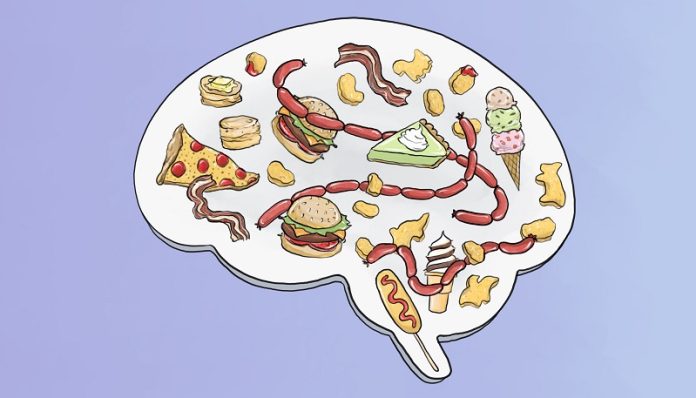
We often think people gain weight because junk food tastes too good. But new research from the University of California, Berkeley, reveals a surprising twist: people with obesity may actually enjoy eating less than others.
The study, published in the journal Nature, shows that long-term eating of high-fat foods can change the brain.
These changes reduce the pleasure we feel from eating, which may cause people to overeat out of habit—not hunger or joy.
Scientists found that the key to this change is a brain chemical called neurotensin. It works with the brain’s reward system, especially the dopamine network, which controls how much we enjoy things like tasty food.
In people and animals with obesity, neurotensin levels are lower. This makes food less enjoyable, even when it’s something delicious like chocolate or peanut butter.
“When we fed mice a high-fat diet, they stopped enjoying high-calorie treats the way normal mice did,” said Dr. Neta Gazit Shimoni, one of the lead researchers. “They kept eating, but it seemed more out of habit than pleasure.”
This loss of pleasure may actually worsen obesity, since people may eat more trying to chase a feeling that no longer comes.
The researchers used advanced techniques to study brain activity in mice. They found that when neurotensin was low, even stimulating the brain’s pleasure circuits didn’t make the mice more interested in treats.
The good news? When obese mice were put back on a regular diet for just two weeks, their neurotensin levels improved. Their brains responded to food more normally, they lost weight, and they were less anxious and more active.
In another experiment, scientists used a gene therapy to boost neurotensin directly. The results were similar—mice lost weight, regained interest in food, and ate more normally.
“Restoring neurotensin brings back the pleasure of eating,” said lead author Dr. Stephan Lammel. “This might sound like a bad thing if you’re trying to lose weight, but actually, it helps people stop eating out of habit or boredom.”
While these findings are from mice, they could lead to better treatments for obesity in humans. The team is now studying how to target neurotensin safely without side effects, and how it may play a role in other health issues like diabetes or eating disorders.
In the future, helping people enjoy food in a healthier way—rather than taking the joy out of eating—could be key to fighting obesity.
If you care about health, please read studies about the best time to take vitamins to prevent heart disease, and vitamin D supplements strongly reduce cancer death.
For more health information, please see recent studies about plant nutrient that could help reduce high blood pressure, and these antioxidants could help reduce dementia risk.





